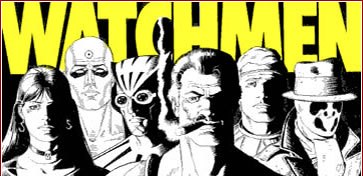Los Angeles, CA – Costa Mesa trademark attorneys filed breach of sponsorship agreement on behalf of NASCAR driver’s team Robby Gordon Motorsports and seek declaratory relief regarding the defendant’s trademark rights. Because of Robby Gordon’s successful NASCAR racing career, companies are willing to pay significant amounts of money for sponsorship and licensing opportunities. The complaint alleges that in 2007, Gordon and Camping World entered into a sponsorship agreement by which Camping World sponsored Robby Gordon Motorsports in connection with several NASCAR races.
 For the 2008 racing season, Camping World and Robby Gordon Motorsports entered into another sponsorship agreement where “Camping World agreed to provide two motor coaches and pay [Gordon] $200,000 per race for primary car sponsorship for four NASCAR Sprint Cup races.” The complaint alleges that Camping world has partially performed its obligations by providing one of the two motor coaches, but is now refusing to provide the second motor coach. The complaint continues that Camping World sought to renege the sponsorship agreement by demanding that Robby Gordon “ensure that Camping World’s colors and logos do not appear on [Gordon’s] car…and Gordon does not have [Camping World’s] permission to bear [Camping World’s] trademarks.” Also, Camping World has allegedly failed to pay at least $250,000 due under the sponsorship agreement. Robby Gordon Motorsports requests monetary damages for the alleged breach of contract and the Court’s determination of the rights of the parties with respect to the trademarks. The case is titled Team Gordon, Inc. v. Camping World, Inc., CV08-01731 MMM (C.D. California).
For the 2008 racing season, Camping World and Robby Gordon Motorsports entered into another sponsorship agreement where “Camping World agreed to provide two motor coaches and pay [Gordon] $200,000 per race for primary car sponsorship for four NASCAR Sprint Cup races.” The complaint alleges that Camping world has partially performed its obligations by providing one of the two motor coaches, but is now refusing to provide the second motor coach. The complaint continues that Camping World sought to renege the sponsorship agreement by demanding that Robby Gordon “ensure that Camping World’s colors and logos do not appear on [Gordon’s] car…and Gordon does not have [Camping World’s] permission to bear [Camping World’s] trademarks.” Also, Camping World has allegedly failed to pay at least $250,000 due under the sponsorship agreement. Robby Gordon Motorsports requests monetary damages for the alleged breach of contract and the Court’s determination of the rights of the parties with respect to the trademarks. The case is titled Team Gordon, Inc. v. Camping World, Inc., CV08-01731 MMM (C.D. California).
 Los Angeles Intellectual Property Trademark Attorney Blog
Los Angeles Intellectual Property Trademark Attorney Blog


 In February of 2006, Swann purchased a DVD of “A Date With Anna” and discovered that twenty two minutes of his copyrighted music was used in Kournikova’s DVD. Swann alleges that because he expressly rejected the licensing agreement offer, no agreement was ever reached and the use of the copyrighted material without license, or other consideration constitutes copyright infringement. Swann alleges that “as early as April 2003, defendants, and each of them, without Plaintiff’s permission, license, and without remuneration to Plaintiff, adapted, used, reproduced, marketed, distributed and sold Plaintiff’s copyrighted material in the defendants’ video production, a digital video disc (DVD) entitled, ‘A DATE WITH ANNA.'” Swann continues that the infringement by the defendants was intentional and knowing and seeks preliminary and permanent injunctions against the distribution of the video. The case is titled Christopher Jerry Swann v. Anna Kournikova et al., CV08-01477 R (C.D. California).
In February of 2006, Swann purchased a DVD of “A Date With Anna” and discovered that twenty two minutes of his copyrighted music was used in Kournikova’s DVD. Swann alleges that because he expressly rejected the licensing agreement offer, no agreement was ever reached and the use of the copyrighted material without license, or other consideration constitutes copyright infringement. Swann alleges that “as early as April 2003, defendants, and each of them, without Plaintiff’s permission, license, and without remuneration to Plaintiff, adapted, used, reproduced, marketed, distributed and sold Plaintiff’s copyrighted material in the defendants’ video production, a digital video disc (DVD) entitled, ‘A DATE WITH ANNA.'” Swann continues that the infringement by the defendants was intentional and knowing and seeks preliminary and permanent injunctions against the distribution of the video. The case is titled Christopher Jerry Swann v. Anna Kournikova et al., CV08-01477 R (C.D. California). In 1991, Fox entered into an agreement with Largo International, whereby Fox quitclaimed certain of its rights in The Watchmen, but “expressly preserved, reserved and/or granted to Fox various rights, including exclusive rights to distribute the first motion picture based on The Watchmen.” Producer Lawrence Gordon was a joint venturer in Largo, and when he withdrew in 1993, Largo assigned, transferred and conveyed to Golar all of its rights in The Watchmen. In 1994, Fox and Gordon entered another agreement which required Fox to be paid a buy-out amount if The Watchmen movie was produced, in addition for profit participation of 2.5 percent of 100 percent of net profits on each motion picture, remake or sequel.
In 1991, Fox entered into an agreement with Largo International, whereby Fox quitclaimed certain of its rights in The Watchmen, but “expressly preserved, reserved and/or granted to Fox various rights, including exclusive rights to distribute the first motion picture based on The Watchmen.” Producer Lawrence Gordon was a joint venturer in Largo, and when he withdrew in 1993, Largo assigned, transferred and conveyed to Golar all of its rights in The Watchmen. In 1994, Fox and Gordon entered another agreement which required Fox to be paid a buy-out amount if The Watchmen movie was produced, in addition for profit participation of 2.5 percent of 100 percent of net profits on each motion picture, remake or sequel.